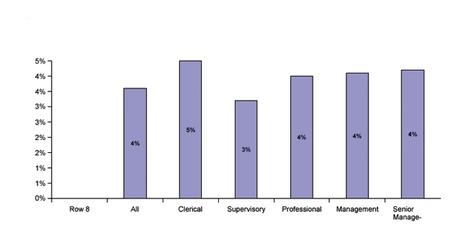|
|
Wednesday, 11th February 2026 |
| Salary levels are forecast to increase at a slower rate |
Back |
| Salary levels are expected to increase by an average of 3.6 per cent in 2005 compared with an average of 4.6 per cent in 2004, according to Mercer's annual International Financial Services Remuneration Guide. Pictured are Mary McDermott and Kevin McGowan. |
Mercer Human Resource Consulting will shortly publish the International Financial Services Remuneration Guide (IFSRG). This will be the 16th year the survey will be run in Ireland, and the guide presents compensation data from IFSC financial service institutions, based inside and outside the IFSC. The survey covers over 200 roles from junior administrator to CEO.
 | | Mary McDermott and Kevin McGowan |
Incentives and benefits
Kevin McGowan & Associates will run the Guide for Mercer, and McGowan is excited about the enhancements that Mercer will be making to the IFSRG to distinguish it from traditional compensation and benefits surveys in the financial services arena. He believes that, ‘More than ever, companies are adopting a total rewards approach and that this year, the IFSRG will support this trend by valuing the total remuneration package - base salary, short term incentives, long term incentives and benefits’.
Based on her experience in Mercer’s Compensation and Rewards division, Mary McDermott feels that companies are more focussed on matching their roles with roles of similar scope and level of responsibility, rather than job titles only. The IFSRG will be underpinned by Mercer’s proprietary job evaluation methodology, which will facilitate these accurate market comparisons. Companies are also becoming increasingly sophisticated in their approach to benchmarking pay and benefits. As a result, this year’s on line delivery of the survey will be a major attraction for companies as, ‘the interactive web-based tool will enable participants generate custom statistics based on their chosen criteria and peer group – effectively, it will provide participants with access to multiple surveys within one survey’.
 | | Table 1: Forecast salary movements from July 2004 |
Finding the balance between motivating and rewarding employees while managing costs is a key challenge for companies today. More than ever, HR professionals in the international financial services sector need access to up-to-date comprehensive compensation and benefits data. Based on the findings of last year’s report, the trends indicate that salary levels are forecast to increase at a slower rate this year than was experienced in 2004. (See table 1)
Salary levels are expected to increase by an average of 3.6 per cent in 2005 compared with an average of 4.6 per cent in 2004. Results also highlight that many international financial services companies are predicting growth, with one third of banking organisations and half of insurance organisations anticipating increases in employee numbers. Indeed, only seven per cent of participants anticipate a reduction in numbers.
The survey also provides key benefit trend information. Last year, 72 per cent of participating companies provided defined contribution schemes with an average employer contribution of 10 per cent and average employee contribution of 5 per cent. This highlights a slight increase in the prevalence of defined contribution schemes since 2003 although contribution rates have remained steady. Private medical insurance has become a standard benefit within the financial services sector. While over 95 per cent of companies provide private medical insurance to some sections of the employee population, the survey indicates that 75 per cent of companies pay fully for private medical insurance for all employees, with VHI being the main insurance provider.
In recent years, employees have placed an increasing value on flexible work arrangements. With over 11 per cent of employees in participating companies living outside Dublin and recent demographic and social changes, it comes as no surprise that over half of participating companies offer flexible working arrangements. Amongst these organisations, part time working and flexi-time are the most frequently provided options.
Participating companies come from the banking, insurance, fund management and stock broking sectors. Participants have included Bank of Ireland Corporate, Allianz Worldwide, XL Europe and Defpa Bank. Deirdre Maher from Pioneer Investments has noted that she found the IFSRG very useful in, ‘allowing her to keep up to date with remuneration trends within the financial services market’.
Restructuring
It has been a busy year in the international financial services sector in Ireland, with quite a number of organisations undergoing restructuring and change, in addition to the changing demographics of the workplace. It will certainly be interesting to see how these changes have impacted remuneration practices across the various roles in the industry. Enrolment in the IFSRG is currently open and further details can be found at www.imercer.com or by contacting Kevin McGowan at (01) 4118408. |
|
| Article appeared in the April 2005 issue.
|
|
|